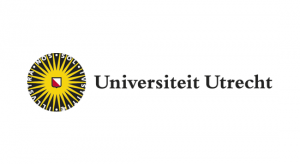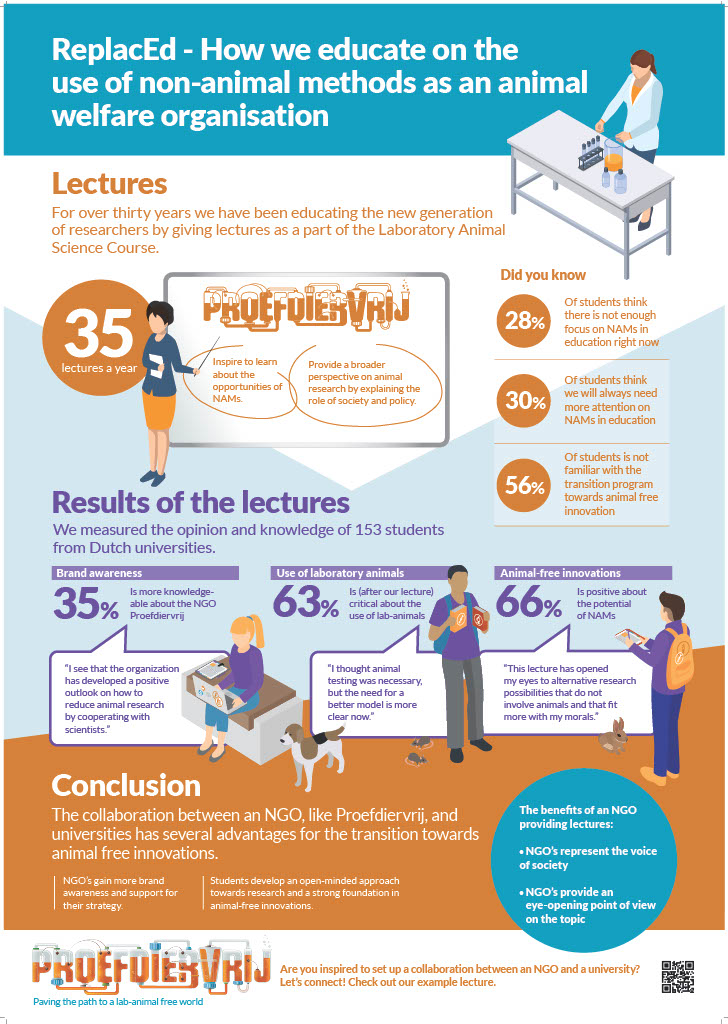The students of today are the scientists and politicians of tomorrow. That is why we encourage students to engage in research without laboratory animals, for instance by giving lectures and presentations.
We give lectures to students doing Animal Science
Every year we give an average of 30 lectures to students who will (potentially) work with laboratory animals. The approximately one-and-a-half-hour lectures are given at universities throughout the Netherlands, as part of the course Animal Science.
In our lectures we challenge students to think critically and to discuss ethical issues surrounding laboratory animals. Of course, we also tell them more about Proefdiervrij and existing animal-free models.
Want to know more about the results of our lectures or watch one of our lectures? Then check this link.
“During lectures, I explain that our goal is to advance science by using human-based, non-animal methods within scientific research. That way, the results from studies are more translatable to humans.”
Lisanne, science and innovation officer

Are you a student and do you have to work with laboratory animals, but don’t want to?
If you are confronted with animal testing during your education, you are allowed to refuse to work with laboratory animals. This is because, as a student, you have the right to receive education without laboratory animals. Educational institutions are obliged to offer an animal-free curriculum to students who wish to do so.
We understand that it can be difficult to raise this concern with your teachers. Would you like to know more about your rights or what steps you can best take? Then send an email to info@proefdiervrij.nl. We will be happy to help you.
We replace laboratory animals in education with the Dierdonorcodicil
Did you know that laboratory animals are also used in higher education? For example, in veterinary medicine: veterinarians in training need to be able to practice properly before they start working with our beloved four-legged pets. That is why we are also working hard to reduce the use of laboratory animals in education.
In 2010, together with Utrecht University, we set up the Dierdonorcodicil (DDC). This initiative allows pet owners to donate their deceased pets to science. As a result, laboratory animals no longer need to be bred and killed for anatomy studies in veterinary medicine courses.


